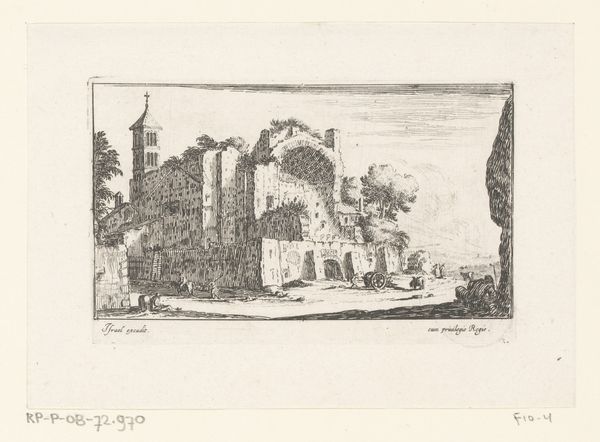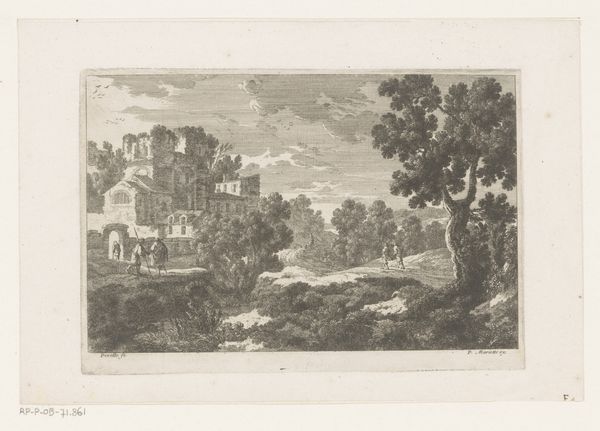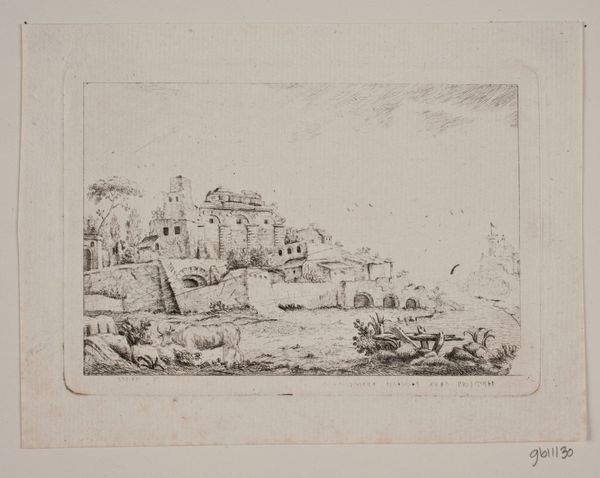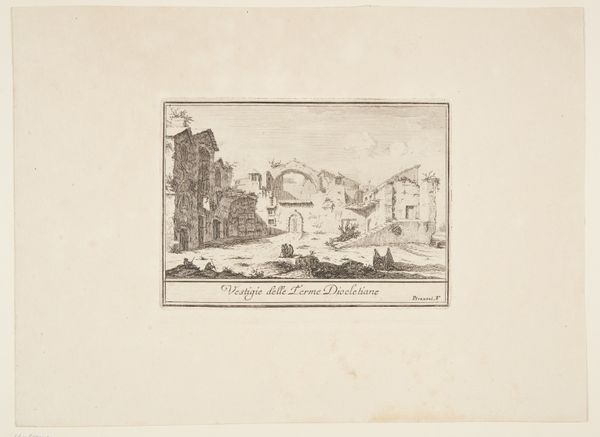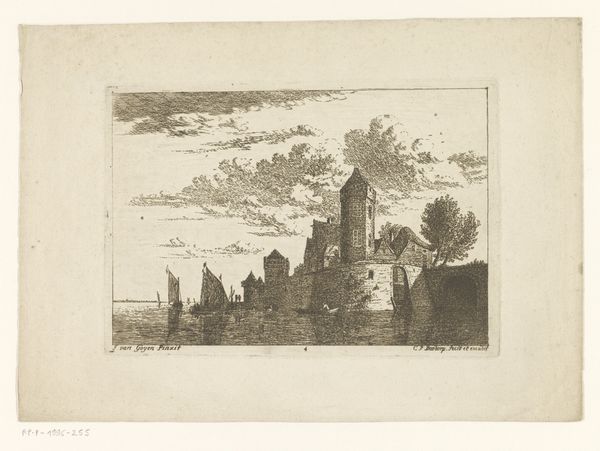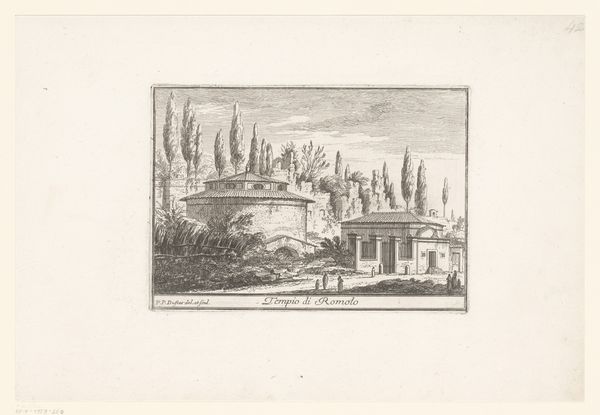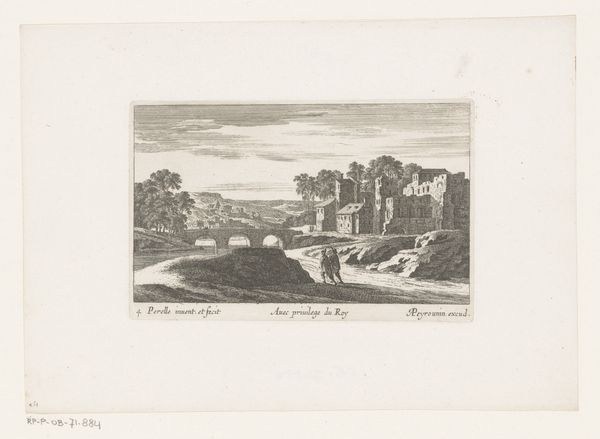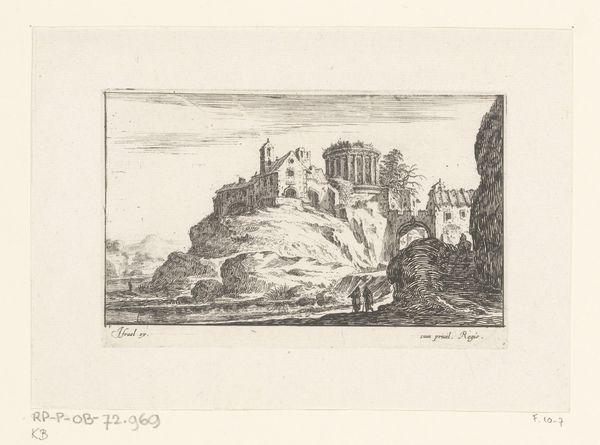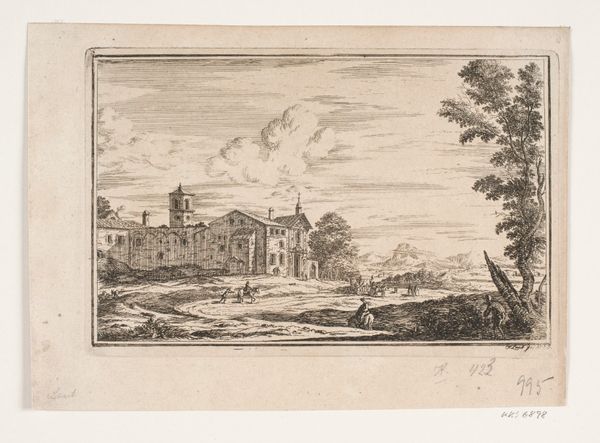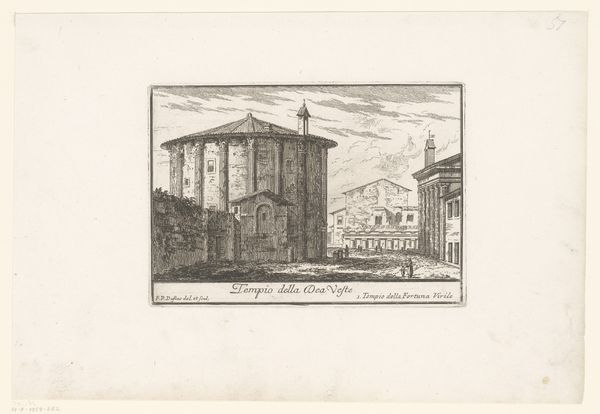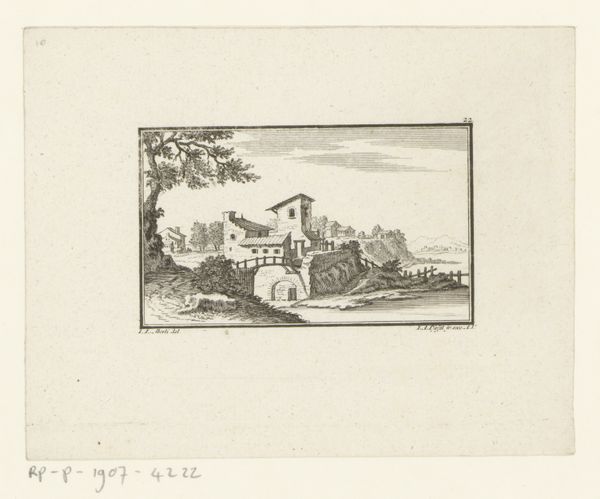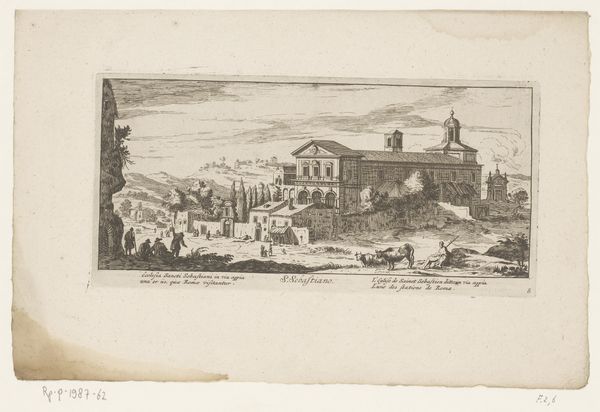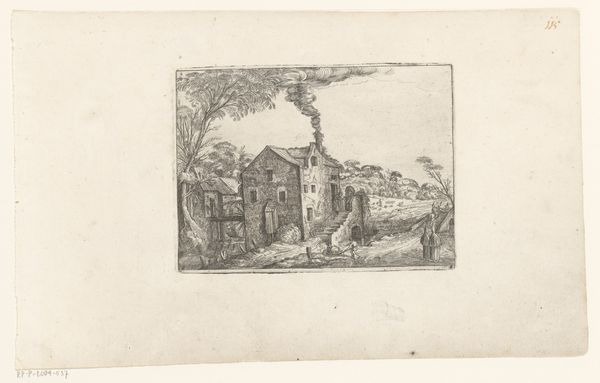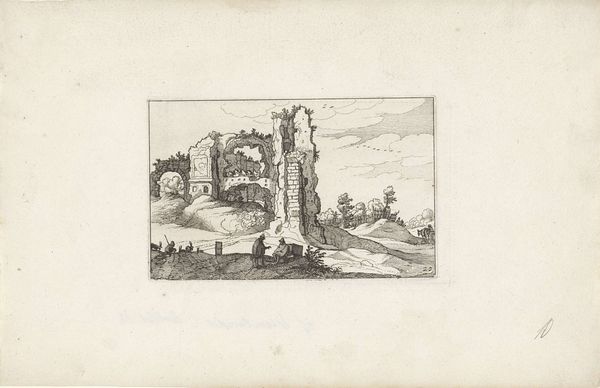
tempera, print, paper, engraving
#
baroque
#
tempera
# print
#
landscape
#
paper
#
cityscape
#
engraving
Dimensions: height 131 mm, width 185 mm
Copyright: Rijks Museum: Open Domain
Philothée François Duflos made this print of the Temple of Bacchus in Rome sometime in the first half of the 18th century. It shows us how the remains of classical antiquity were being reimagined in his time. Through the visual codes of classical architecture, we can see Rome's deep connection to its past, and the cultural references to gods like Bacchus remind us of the city's rich mythology. In the 1700s, Rome was a major destination for artists on the Grand Tour. Institutions like the French Academy in Rome shaped artistic production and the reception of ancient art, as the ruins became symbols of cultural prestige. This print is of course a commentary on the social structures of its time, particularly the importance of classical education and the patronage of the arts by wealthy elites. As historians, we explore archives, libraries, and collections to reconstruct the social and institutional contexts that gave rise to artworks like this print. By examining the historical reception of classical art, we gain insights into the meaning of art as something deeply contingent on its time and place.
Comments
No comments
Be the first to comment and join the conversation on the ultimate creative platform.
